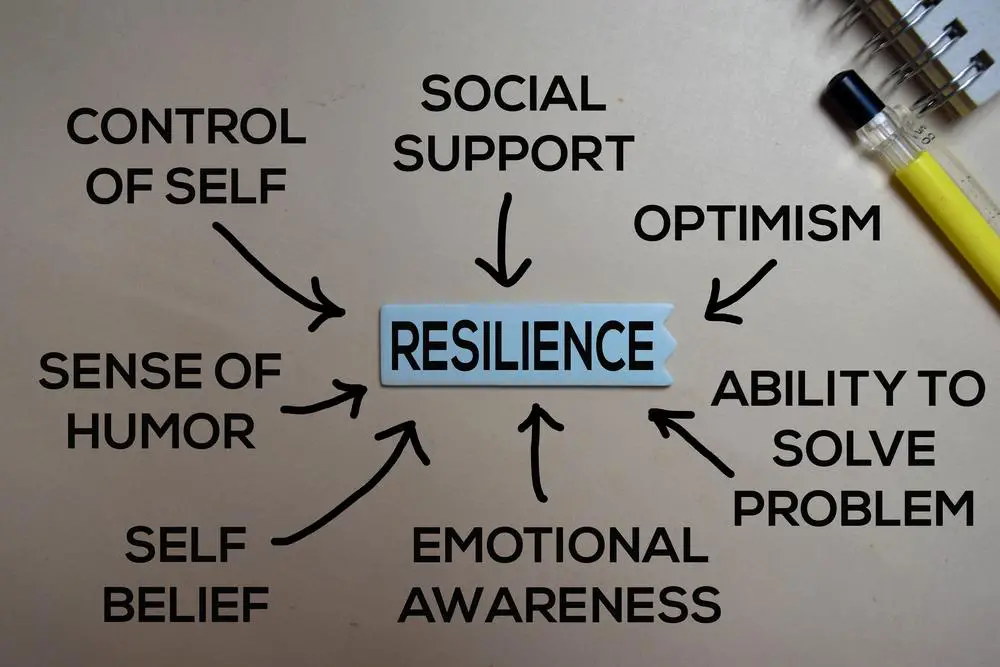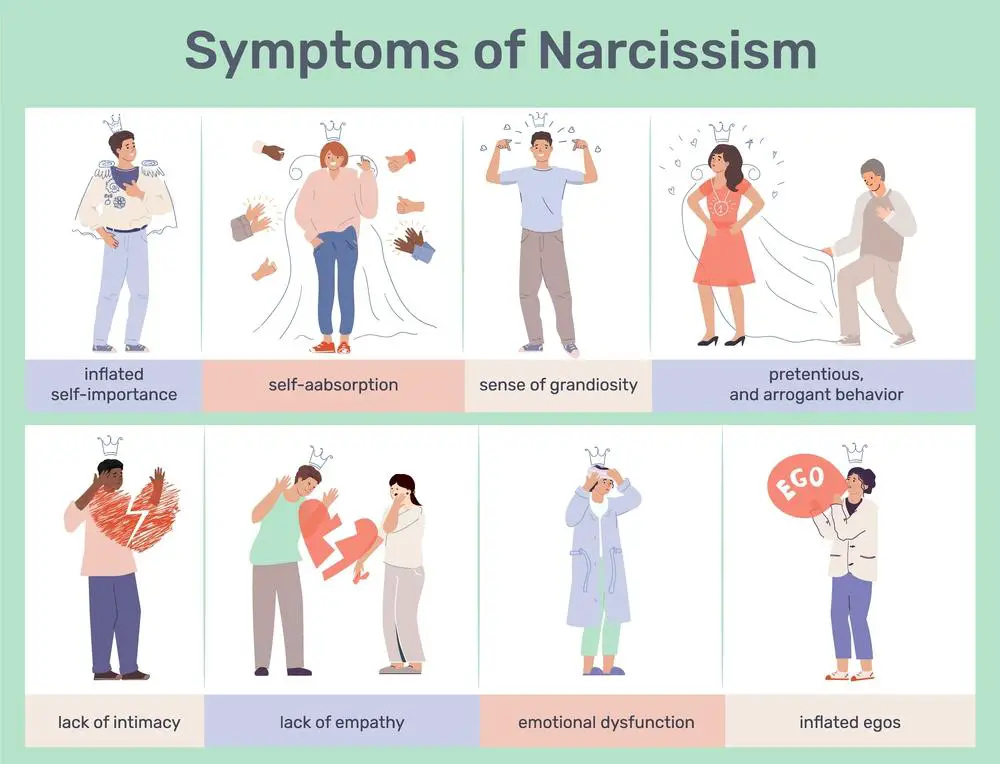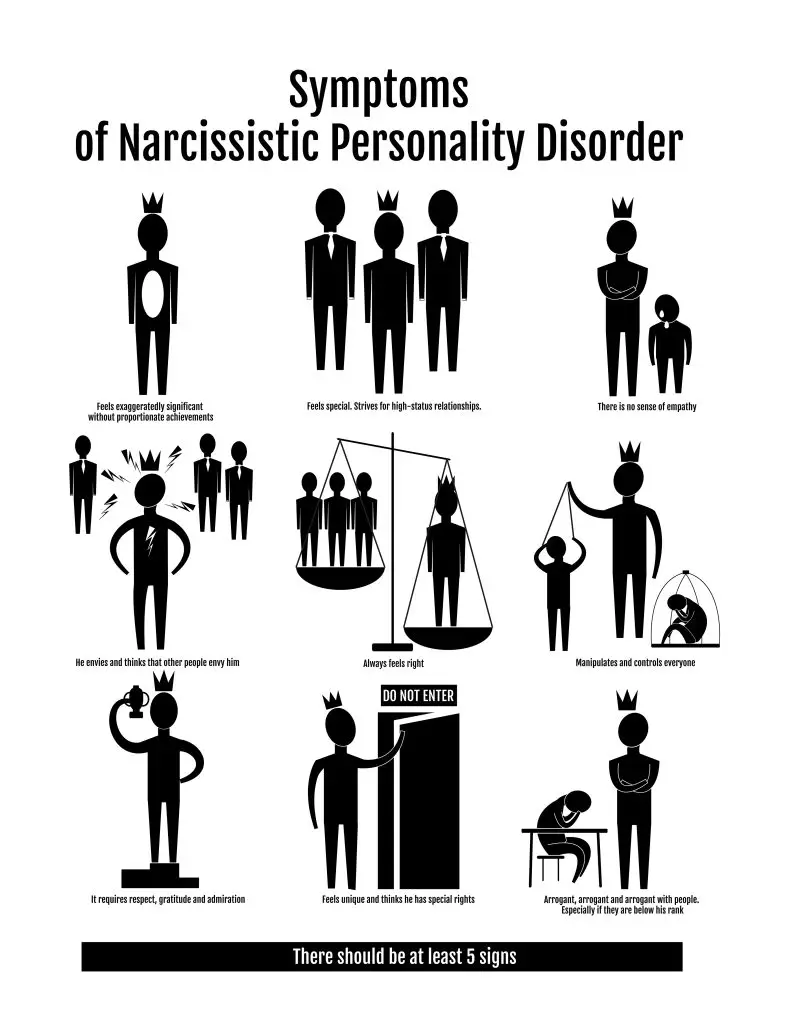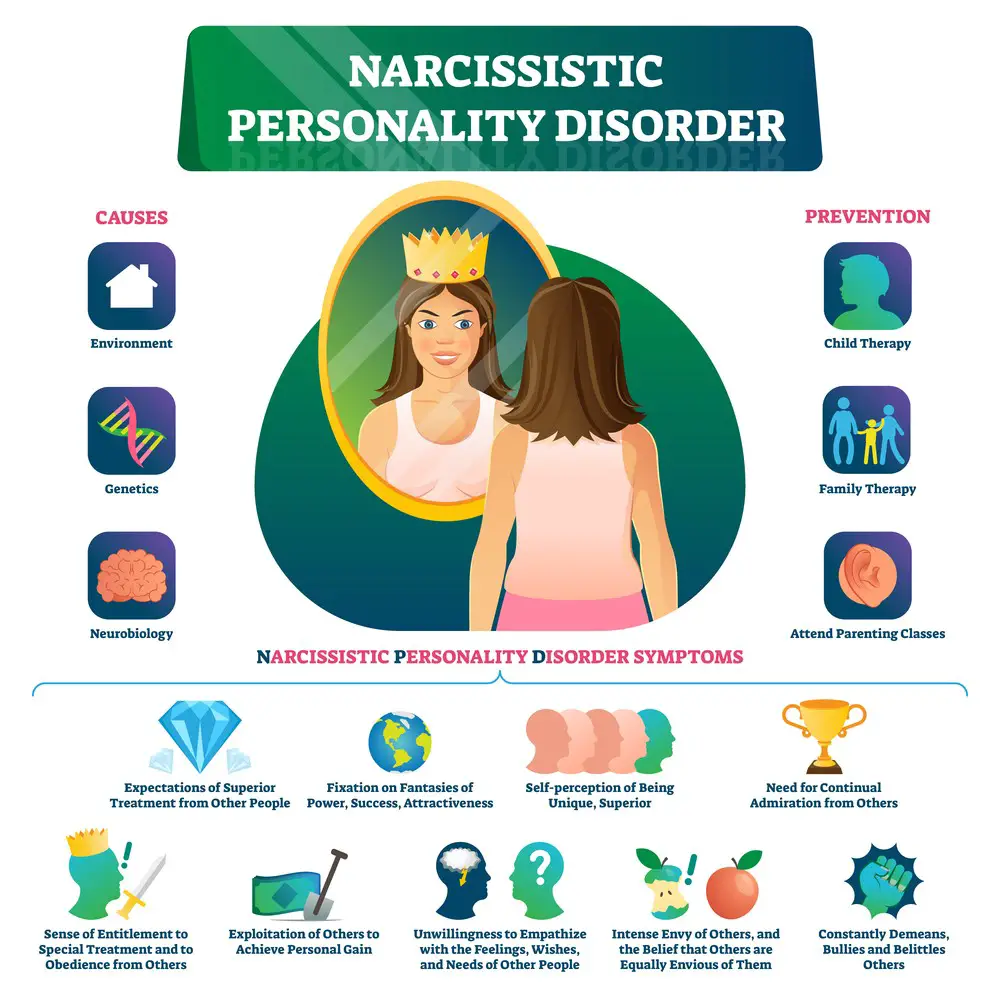As a BetterHelp affiliate, we receive compensation from BetterHelp if you purchase products or services through the links provided
The question “Is God a narcissist?” can spark heated debates among believers and non-believers alike. On one hand, some individuals argue that God’s apparent need for constant praise and worship in religious texts appears narcissistic. On the other hand, others maintain that God’s love and sacrifice for humanity is the antithesis of narcissism. A comprehensive discussion requires a deep understanding of narcissistic traits and how they may or may not relate to the image of God.
Narcissism is characterized by a sense of grandiosity, excessive admiration from others, and a lack of empathy for the needs and feelings of others. When examining the concept of God within religious texts and beliefs, one may find elements that parallel these narcissistic traits, such as God’s demand for adoration and obedience. However, counterarguments arise, pointing out the loving nature of God and emphasizing the paradox between God’s desire for acknowledgment and the selfless actions that embody divine love.
Key Takeaways
- The question “Is God a narcissist?” involves an analysis of narcissistic traits and their relation to the image of God.
- Identifying whether God’s desire for worship and obedience is truly narcissistic requires a deep understanding of both narcissism and theology.
- Exploring the paradox between God’s apparent need for acknowledgment and the selfless actions of divine love is a key component of this discussion.
 Understanding Narcissism
Understanding Narcissism
Defining Narcissistic Personality Disorder
Narcissistic Personality Disorder (NPD) is a mental health condition characterized by a person’s inflated sense of self-importance, a constant need for attention and admiration, and a lack of empathy for others. If you’ve ever encountered someone with this disorder, you may have noticed their preoccupation with power, success, and appearance. They might also display arrogance and a sense of entitlement.
NPD is a subtype of pathological narcissism, which often occurs alongside other conditions like depression. It’s important to remember that not everyone who exhibits narcissistic traits has NPD. It’s completely normal for people to exhibit some level of narcissism in various situations. It’s only when these traits interfere with one’s ability to function healthily in life that NPD becomes a concern.
Here are some key takeaways about NPD:
- Inflated sense of self-importance
- Constant need for attention and admiration
- Lack of empathy for others
- Preoccupation with power, success, and appearance
 Narcissus and Greek Mythology
Narcissus and Greek Mythology
Understanding the origins of the term “narcissist” requires delving into Greek mythology. The story revolves around Narcissus, a handsome hunter known for his stunning beauty. However, Narcissus was also extraordinarily vain and rejected the advances of those who loved him.
The goddess Nemesis, seeking to teach him a lesson, made Narcissus fall in love with his reflection in a pool of water. Unable to leave the sight of his beauty, Narcissus wasted away in his obsession, eventually turning into a flower that now bears his name.
This ancient tale illustrates the essence of narcissism, displaying the dangers of excessive self-admiration and neglect of those around us. While the modern understanding of narcissism has evolved, the story of Narcissus serves as a cautionary tale, reminding us all to keep our ego in check and remain empathetic towards others.
To summarize the story of Narcissus:
- Handsome hunter in Greek mythology
- Vain, rejected the advances of others
- Fell in love with his reflection and wasted away
- Turned into a flower, reminding us to be humble and empathetic
 Narcissistic Traits in the Image of God
Narcissistic Traits in the Image of God
Views on God’s Narcissistic Traits
Some people argue that the Christian concept of God can be perceived as selfish, referencing the idea of a “narcissistic God” in the context of the God of the Bible. They claim that God’s requirement for continuous worship and praise is self-indulgent and self-centered. It can sometimes be challenging to relate to a deity with these characteristics.
Nevertheless, it’s important to remember that religious texts and beliefs are subject to interpretation. Different perspectives can illuminate various aspects of the divine nature, enabling a deeper understanding of God’s traits.
God’s Glory and Admiration
In addition, God’s admiration and glory is worth examining. In religious frameworks, God is often seen as an omnipotent and omniscient being, and these qualities are typically what drive the admiration from followers. The notion of God’s glory is frequently linked to the divine power to create and govern the universe and also inspires awe and devotion in believers.
Moreover, it is essential to distinguish between the admiration of God as a religious concept and the kind of admiration sought by those with Narcissistic Personality Disorder (NPD). People with NPD have an excessive need for admiration that often stems from low self-esteem. In contrast, the adoration of God can be seen as a recognition of divine greatness and a way to connect with a higher power.
While it is reasonable to question these aspects of God’s nature, it is crucial to recognize that human interpretations of God can be subjective and multifaceted. In analyzing the intersection of God and narcissism, keeping an open mind and acknowledging various perspectives can provide valuable insights into the divine.
 Self-Love or Narcissism
Self-Love or Narcissism
God’s Love Vs Self-love
When discussing the concept of self-love and its distinction from narcissism, it’s essential to consider how God’s love plays a role in this conversation. For many religious believers, God is seen as the ultimate source of love, both for oneself and others. When we compare this divine love with self-love, we can find ways to strike a balance.
As believers, we can acknowledge the importance of loving oneself without falling into the trap of becoming selfish or narcissistic. Embracing self-love involves recognizing our worth, which ultimately comes from God, in a healthy and grounded manner. This allows us to avoid inflating our self-worth to the level of narcissism.
Here are a few tips to help you maintain a balance between self-love and narcissism:
- Check your motives: Do you love yourself for personal growth or to inflate your ego?
- Humility: Remember that God is the source of your worth, and remind yourself to be humble in recognizing that fact.
- Empathy: Strive to be considerate of the needs and feelings of others around you.
Egocentrism in the Divine
At times, it may seem like an attribute of God could be seen as selfish or narcissistic, given the expected reverence. However, to fully grasp the divine nature, one should consider that God’s actions and involvement are aimed at the well-being of all creation.
In religious teachings, we often find that God is portrayed as a benevolent and compassionate figure, always looking to guide humanity towards a better and more harmonious existence. This depiction of God is far from selfish; instead, it exemplifies the ultimate example of love and care for others.
Takeaway: By understanding the difference between self-love and narcissism, as well as embracing divine love, we can better navigate our relationship with ourselves, others, and God. A humble and empathetic approach strengthens our connection to the divine and helps us grow.
 God, Sin, and Superiority
God, Sin, and Superiority
God’s Perceived Superiority
In the concept of God, many people often see a being of absolute power, knowledge, and love. This powerful image can sometimes lead people to perceive God as a superior figure, one who may come off as a narcissist. However, the mere superiority of God doesn’t make Him narcissistic. Divine characteristics, such as omnipresence, omnipotence, and omniscience, are meant to portray a loving and caring God working tirelessly to guide and protect their creations.
Takeaway point: God’s perceived superiority should not be mistaken for narcissism, as divine attributes are centered around love and care for His creations.
God’s Judgment on Sin
Another aspect that might spark the question of narcissism in God is His judgment on sin. It’s natural for you to wonder why an all-powerful God would judge us due to our inherent flaws and sinful nature. However, it is essential to understand that God’s judgment aims to guide us back onto a path of righteousness rather than merely seeking self-glorification.
God calls for repentance and compassion, teaching us that humility, selflessness, and love are the pathways to a Godly life. This perspective shows that God’s judgment on sin serves a higher purpose, which is to bring us closer to Him and each other rather than satisfying any narcissistic tendencies.
Takeaway point: God’s judgment on sin is to lead us towards repentance, selflessness, and a loving relationship with Him and others, not for self-glorification.
Remember, this discussion does not dictate one’s personal belief or opinion on the matter but rather provides insight into the question of whether God is narcissistic based on His perceived superiority and judgment of sin. It is vital to engage with these ideas from a perspective of mutual understanding and respect.
 Narcissism in Biblical Characters
Narcissism in Biblical Characters
Narcissistic Traits in Biblical Figures
Narcissism can be found in several characters in the Bible. These individuals display excessive self-interest and a lack of empathy for others. Here are a few examples of narcissistic traits in biblical figures:
- Onan: Known for his selfishness and greed, Onan prioritized his desires over the well-being of others.
- Jezebel: She was characterized by her manipulation and deceit to control those around her, driven by her hunger for power.
- Nabal: This wealthy man was stubborn, self-absorbed, and unappreciative of the support and protection he received from others.
These characters showcase the dangers of allowing narcissism to take control of their lives. Their actions led to negative consequences and ultimately, their downfall.
Jesus and Narcissism
Jesus, on the other hand, demonstrated the opposite of narcissism. He embodies love, compassion, and humility – qualities that counteract the self-absorbed nature of a narcissist. Consider the following aspects of Jesus’ life:
- Servanthood: Jesus washed his disciples’ feet, illustrating his willingness to serve others rather than seeking glory or power for himself.
- Sacrifice: Jesus gave his life on the cross for the salvation of mankind, displaying the ultimate act of selflessness and love.
- Forgiveness: Despite being betrayed, denied, and crucified, Jesus forgave those who wronged him, exemplifying empathy and grace.
By examining Jesus’ actions and character, it becomes clear that God is not a narcissist. Instead, He represents the essence of love and sacrifices Himself for the betterment of humanity. As Christians, we should strive to emulate Jesus’ character, rejecting narcissistic behaviors and fostering humility, love, and empathy in our lives.
 Psychological Views on God’s Narcissism
Psychological Views on God’s Narcissism
Psychology’s Perspective
From a psychological standpoint, the concept of narcissism stems from a preoccupation with oneself and tends to have negative connotations. It’s associated with excessive selfishness, vanity, and pride. When examining whether God could be selfish, it is essential to differentiate between the human understanding of narcissism and the nature of God.
The term narcissism originates from Greek mythology, where Narcissus fell in love with his reflection, ultimately leading to his downfall. In psychology, Narcissistic Personality Disorder (NPD) is diagnosed when someone exhibits persistent and long-term narcissistic traits, often co-occurring with other mental health conditions such as depression.
Keep in mind that the ideas of narcissism in psychology are focused on human behaviors and flaws. It’s crucial to consider God’s nature and whether these psychological concepts can be applied to a divine being.
Views from Psychologists
Some psychologists and theologians grapple with the idea of God being considered narcissistic, primarily due to the emphasis on worship and praise found within religious texts and beliefs. However, it’s essential to take into account that a desire for self-exaltation and validation drives human narcissism, while God is depicted as self-sufficient, independent, and autonomous.
One critical distinction between narcissists and God is the concept of aseity. Aseity means the quality of being self-derived or self-originated, which applies to God in most religious beliefs. This denotes the absolute self-sufficiency and independence of God, contrasting with the craving for validation that defines human narcissism.
So, when exploring the notion of God’s narcissism from a psychological viewpoint, it’s pivotal to recognize the limitations of applying human-focused concepts to divine entities. Remember to take into account the various nuances of both narcissism in psychology and the nature of God as described in religious texts and beliefs.
Counterarguments to God’s Narcissism
God’s Empathy and Self-Sacrifice
While some argue that the divine requirement for worship and praise may appear narcissistic, it’s essential to consider God’s empathy and self-sacrifice. In Christianity, the ultimate example of empathy is Jesus Christ, who entered human reality to experience and share in our sufferings. Apart from merely sympathizing with our woes, He willingly endured the most brutal form of execution, crucifixion, on our behalf. This self-sacrificing act illustrates that God’s love is far from narcissistic, as He prioritizes our well-being over His comforts.
- Empathy: God relates to human experiences and suffering.
- Self-sacrifice: Jesus’ crucifixion exemplifies putting others before Himself.
God’s Love and Grace
Another aspect that challenges the notion of God’s narcissism is His boundless love and grace. The foundation of many religious beliefs lies in the understanding that God’s love extends to every individual, regardless of their actions or background. He offers grace, forgiveness, and redemption to all who seek it.
Interestingly, love and grace often involve selfless acts, which contradict the traits of a narcissist. For instance, God’s love and grace:
- Are unconditional: No prerequisites exist for one to be loved by God.
- Offer forgiveness: Despite our mistakes, God grants mercy and pardon.
- Provide redemption: God’s grace restores and transforms lives.
In conclusion, considering empathy, self-sacrifice, love, and grace displayed by God, it becomes apparent that the idea of God being narcissistic doesn’t hold up. Instead, these attributes reveal a compassionate and selfless deity who cherishes humanity.
The Paradox of God’s Narcissism
Analysis of God’s Alleged Narcissistic Behaviour
Let’s attempt to understand the possibility of God being a narcissist. We may define narcissism by symptoms such as excessive need for admiration, disregard for others’ feelings, inability to handle criticism, and a sense of entitlement. However, applying these terms to God can be misleading.
God’s request for worship and praise is often misunderstood. In reality, this praise isn’t about stroking God’s ego but empowering and encouraging believers. With this perspective, you’ll see that God doesn’t have a self-esteem problem. It is crucial not to confuse appreciation of His creation with narcissistic behavior.
The Duality of God (Love and Wrath)
Exploring the duality of God, we can observe both His love and wrath, which some might use as an argument to label God as a narcissist. However, understanding this duality is essential when discussing alleged narcissism.
God’s love is unconditional, and His acts of love towards His creation are carried through various religious teachings and miracles. This love isn’t a result of God’s narcissistic self-admiration but rather a genuine drive to guide, protect, and be close to His creation.
On the other hand, God’s wrath is usually directed towards those who disobey or turn away from His guidance and teachings. It might seem like a narcissist’s reaction to criticism, but it could also be interpreted as a consequence of deviating from a path of righteousness and love.
In conclusion, labeling God as a narcissist is inaccurate and undermines the complexity of His nature and the relationship He has with His creation. Understanding both the empowering aspect of praise and the duality of God’s love and wrath helps us comprehend the paradox of God’s alleged narcissism and avoid simplifications that do not genuinely capture the essence of God.
Conclusion
In exploring the question of whether God is a narcissist, it’s essential to consider various perspectives and understandings of both narcissism and the character of God. Narcissism is generally defined as a personality disorder marked by an inflated sense of self-importance, excessive need for admiration, and lack of empathy for others. With this understanding, can we apply these traits to God?
From a theological standpoint, many argue that God is incapable of being narcissistic. This is because, in contrast to a human narcissist who craves exaltation and validation, God is wholly self-sufficient and does not require validation from His creation. God’s ultimate goal in requiring worship and praise is not to boost His ego but to help His creation grow in love, respect, and communion with Him.
On the other hand, some critics argue that the image of God presented in specific religious texts and traditions exhibits traits that could be interpreted as narcissistic, such as a demand for constant praise and worship. It’s essential to remember, however, that human interpretations and understandings of God are limited, and we may not fully grasp the depth of God’s character.
In the end, it’s crucial to approach this topic with an open and respectful mindset. As you explore the concept of God and narcissism, keep in mind that human comprehension is limited, and the divine reality may surpass our understanding. Engage in thoughtful discussions, listen to diverse opinions, and be open to the journey of discovery. By doing so, you’ll gain a broader perspective on this fascinating subject and grow in your spiritual journey.
Frequently Asked Questions

Does the concept of divine narcissism apply to God?
While it’s true that some people criticize the idea of God as being narcissistic due to the emphasis on worship and praise, this perspective often stems from a misunderstanding of the divine nature. In Christianity, for example, God’s desire for praise and worship is not a result of vanity or ego, but rather an invitation for humans to cultivate a deeper relationship with their Creator. Remember, it’s important to approach the concept of divine narcissism with an open mind and to consider the nuances of each faith’s teachings.
What similarities exist between narcissism and religious fundamentalism?
Narcissism and religious fundamentalism can share a few traits, such as a rigid and inflexible belief system, an insistence on being right, and a tendency to judge others harshly. However, it’s crucial to distinguish between individual behavior and the teachings of a religious belief system. While some individuals may use their religious beliefs to justify narcissistic behavior, this doesn’t mean that the religion itself promotes or encourages such behavior.
How does a narcissist view or relate to God?
A narcissist’s relationship with God can be complex and may vary depending on the individual. Some narcissists may use religion as a means to manipulate or control others, projecting their narcissistic traits onto a divine figure. Others may view God as a competitor, feeling threatened by the idea of anyone possessing more power or control than themselves.
Who in the Bible was considered a narcissist?
The Bible doesn’t explicitly mention the term “narcissist,” but certain characters could be perceived as embodying narcissistic traits. For example, King Nebuchadnezzar of Babylon exhibits behavior that indicates excessive pride and an inflated sense of self-importance, which eventually leads to his downfall.
Is there a connection between narcissism and the idea of evil?
Narcissism shares some common traits with the concept of evil, such as selfishness, a lack of empathy, and manipulative behavior. It’s important to note, however, that narcissism is a personality disorder rather than a moral judgment. While narcissistic behavior can undoubtedly cause harm to others, it’s essential to distinguish between the mental health condition and the concept of evil.
Can Jesus be perceived as a narcissist according to some interpretations?
Occasionally, critics may argue that Jesus exhibits narcissistic traits, such as requiring devotion or expecting others to follow him. However, within the context of Christianity, Jesus’ actions and teachings are rooted in love, humility, and servanthood, which stand in stark contrast to the characteristics of narcissism. It’s vital to view Jesus’ words and actions through the lens of his overall message and to consider the cultural and historical context.
Meet Jacob Maslow: Advocate, Writer, and Resilient Father
Life has a way of throwing curveballs, and I’ve had my fair share. My name is Jacob Maslow, and I’m no stranger to the complexities of mental health and the turbulence it can bring into relationships, especially when faced with a partner whose actions reflect severe narcissistic tendencies.
After my ex decided to halt our reunification therapy—just when progress was being made—it became clear that the journey ahead would be a tough one. The therapy was working; our kids were beginning to see through the alienation, but that’s precisely when cooperation ceased. The challenges didn’t stop there; my ex’s narcissism seemed to grow, just as she feared her beauty was diminishing, leading to complete alienation from my children despite court orders to the contrary.
The silence from my kids over the past year, following years of a close bond, has been a trial by fire for my mental well-being. I’ve been taking Lexapro to manage my health, leaning on the support of platforms like BetterHelp, and immersing myself in the healing rhythms of daily long walks to maintain clarity and balance.
I pour my heart into writing about mental health and narcissism, hoping to offer solace and strategies to those wrestling with similar challenges. Through my words, I aspire to empower others to believe that they can triumph over their mental health battles.
Additionally, I run a legal advice site dedicated to helping those trapped in the quagmire of non-compliance from spouses who would rather weaponize children than co-parent. My mission is to provide guidance and support to individuals navigating the stormy waters of family law.
The experience of being intricately connected to my children and then suddenly cut off has been a stark test of resilience. Yet, it’s a test I face head-on every day, with a pen in hand and a resolve to make a difference—one word, one step, one day at a time.

- Stress Management: What is the Relationship Between Stress and Addiction? - June 28, 2024
- Exploring Techniques to Maintain a Healthy Lifestyle without Drugs - May 28, 2024
- How Acupuncture Helps Treat Chronic Fatigue Syndrome - May 28, 2024
This site contains affiliate links to products. We will receive a commission for purchases made through these links.


 Understanding Narcissism
Understanding Narcissism Narcissus and Greek Mythology
Narcissus and Greek Mythology Narcissistic Traits in the Image of God
Narcissistic Traits in the Image of God Self-Love or Narcissism
Self-Love or Narcissism God, Sin, and Superiority
God, Sin, and Superiority Narcissism in Biblical Characters
Narcissism in Biblical Characters Psychological Views on God’s Narcissism
Psychological Views on God’s Narcissism

